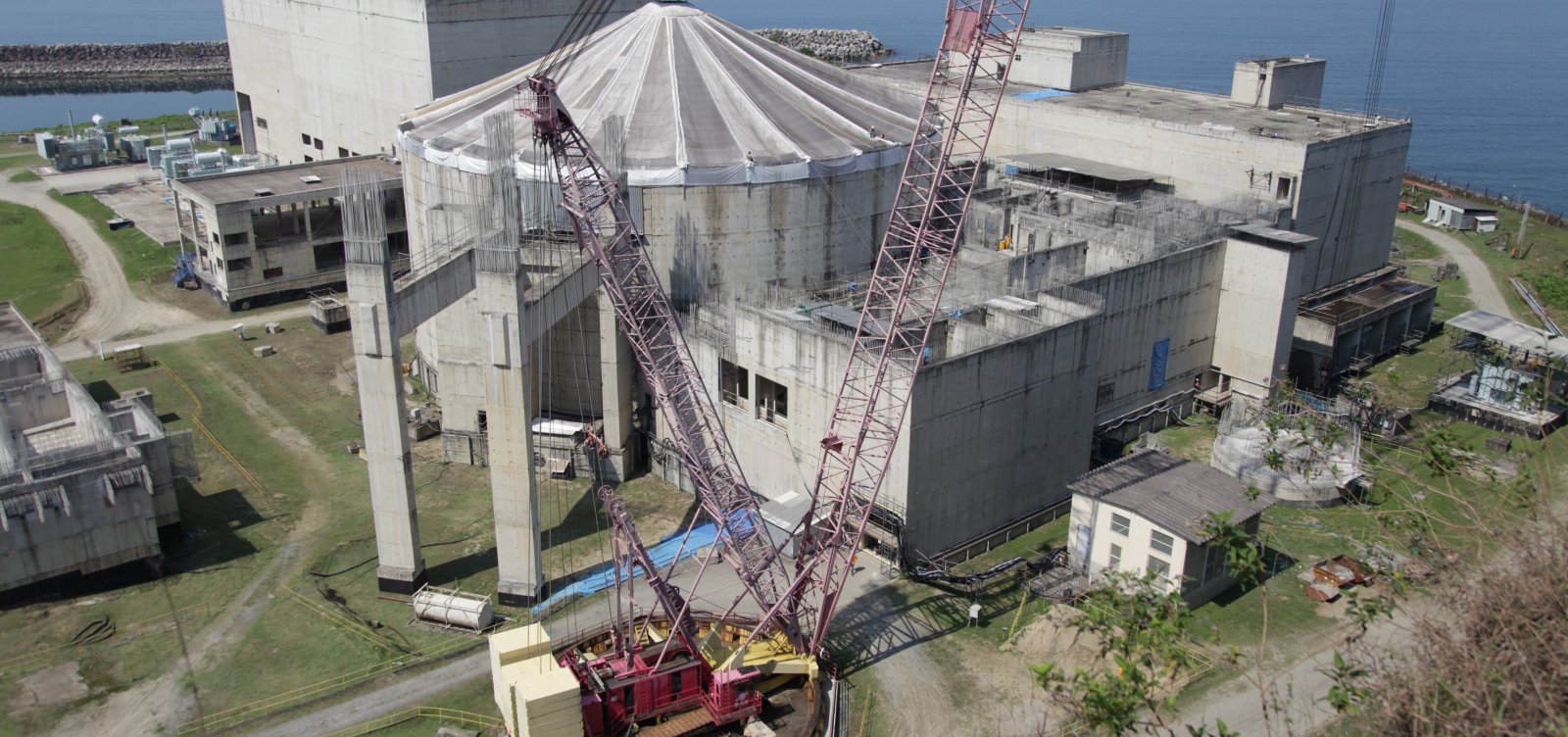 Brazil’s nuclear utility Eletronuclear said in a statement that it is committed to reversing the suspension of work at unit 3 of the Angra NPP. It is seeking a constructive dialogue with the city of Angra dos Reis to clarify the issues and to find a solution that allows the resumption of construction at the site. Eletronuclear stressed the importance of the project for Brazil emphasising that the stoppage of work has wider consequences affecting the economy and the well-being of the local population. Eletronuclear therefore wants to resume construction of the unit as soon as possible, in view of the benefits its completion will bring to the region.
Brazil’s nuclear utility Eletronuclear said in a statement that it is committed to reversing the suspension of work at unit 3 of the Angra NPP. It is seeking a constructive dialogue with the city of Angra dos Reis to clarify the issues and to find a solution that allows the resumption of construction at the site. Eletronuclear stressed the importance of the project for Brazil emphasising that the stoppage of work has wider consequences affecting the economy and the well-being of the local population. Eletronuclear therefore wants to resume construction of the unit as soon as possible, in view of the benefits its completion will bring to the region.
Eletronuclear said it was seeking a "constructive dialogue" with the municipal government after it was ordered to stop work on Angra 3 on 19 April. Construction of the unit had finally restarted in November 2022 only resumed in November after a seven-year freeze.
In April, Mayor Fernando Jordão said he authorised the embargo “because Eletronuclear is executing a project that is not in accordance with what the municipality approved". He added that Eletronuclear had not yet paid the "socio-environmental compensation" it had agreed in 2009, totalling BRL264m ($52m). He noted: "We have to resolve this issue so that we can issue the construction permit for Angra 3.”
President of the Municipal Environment Institute Mário Reis also said Eletronuclear had “increased the circulation area in one of the units, changing the project. He added: “The process is being analysed and a new permit will be issued when the modifications are approved".
Currently, Brazil has two nuclear units in operation at Angra dos Reis, on the Costa Verde, in Rio de Janeiro. Angra 1&2, a total of 1.9GWe, generate 1.1% of the energy of the Brazilian Interconnected System. Angra 1, a 609 MWe Westinghouse pressurised water reactors (PWR), began operation in 1982 following long delays. Unit 2, a 1,275MWe PWR supplied by German Kraftwerk Union, began operation in 2000, again after long delays. Eletrobrás has been working with Westinghouse to extend the operating lifetime of Angra 1 from 40 to 60 years.
Construction of Angra 3, a Siemens/KWU 1,405 MWe PWR began in 1984 but was ceased two years later. Work resumed in 2006, but was suspended a number of times for financial and political reasons. It was stopped again in 2015 when it was 65% complete. Preparation for the restart of concreting began in February 2022 with the signing of a contract between Eletronuclear and the AGIs consortium, comprising Ferreira Guedes, Matricial and ADtranz. This included the assembly of a concrete plant on site in September, and numerous field and laboratory tests. Concreting began in November with a ceremony marking resumption of civil works at the plant, which was then expected to be ready in 2028.
Following Eletronuclear’s statement, the Minister of Mines & Energy, Alexandre Silveira, confirmed that the completion of works on the Angra 3 is a government priority. During a hearing at the Mines & Energy Commission in the Chamber of Deputies, the Secretary for Electric Energy, Gentil Nogueira de Sá Junior, presented an overview of the project. He said the work is budgeted at BRL27.8bn, of which BRL 7.8bn has already been invested. He said the amount of investment still needed (BRL 20bn) is being analysed by the National Bank for Economic & Social Development (BNDES). "A whole model is being built by the bank, because this plant will have constant generation, and we have to reach a balance between energy security and reasonable tariffs", he noted. The cost of abandoning the project is put at BRL13.6bn
The initial schedule indicates that the project can be concluded in 2029. The Ministry of Mines & Energy (MME) said the aim is to save water in hydroelectric reservoirs when there is little rain. However, estimates indicate that the energy cost of Angra 3 would be high, around BRL720 per MWh in the first 16 years, subsequently falling to BRL240. When hydroelectric reservoirs are full, energy on the market costs BRL55.
MME said it is evaluating the investment because nuclear energy is an alternative within the energy transition, since it does not generate greenhouse gas emissions. There are additional benefits, such as job and income generation around the project, as well as mineral extraction to support it. Silveira said the government is discussing completion of Angra 3 noting that BNDES is co-ordinating the process, with the expectation that funds will be obtained by September 2024.
Image: Angra unit 3 (courtesy of Eletronuclear)






